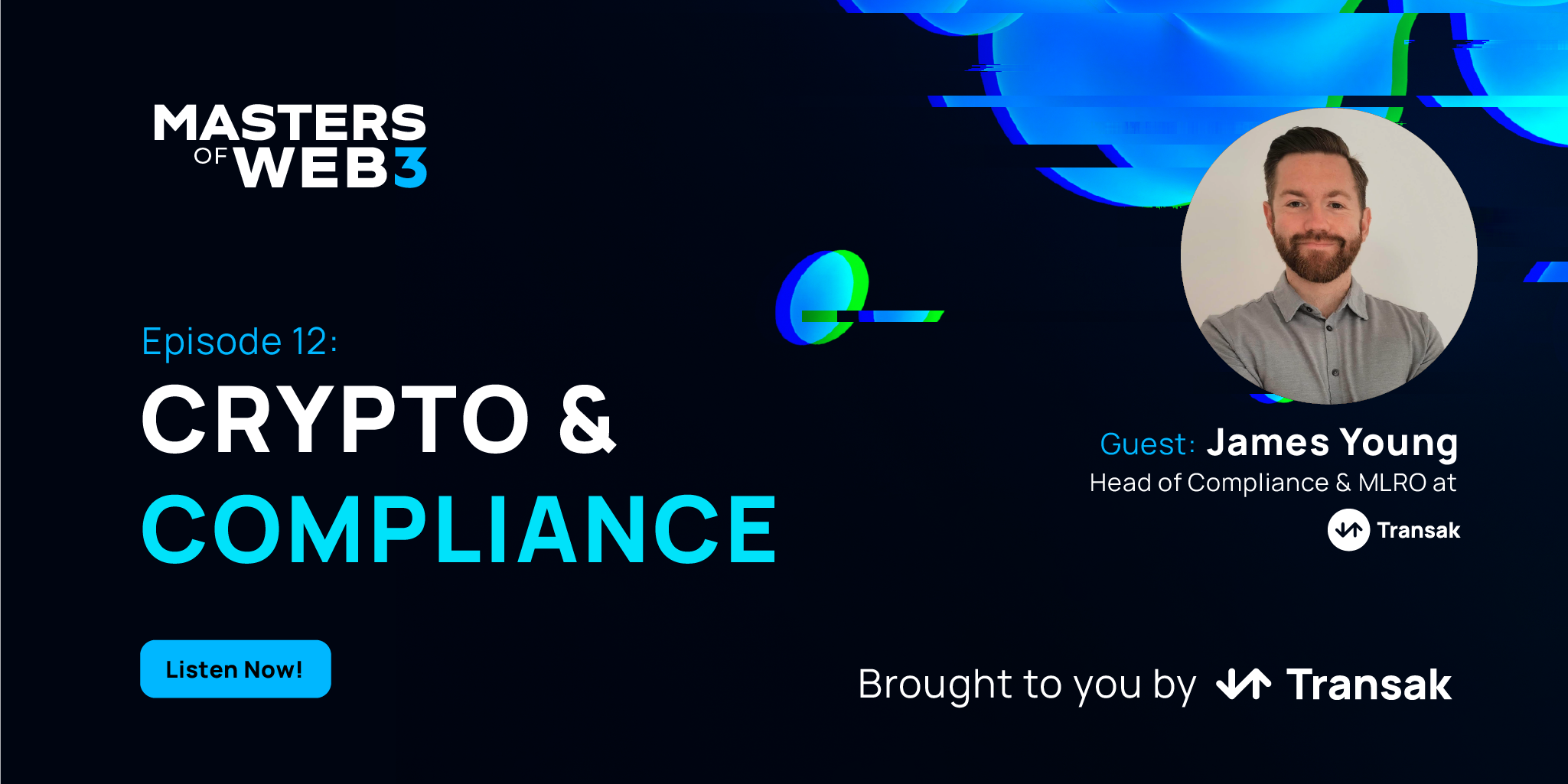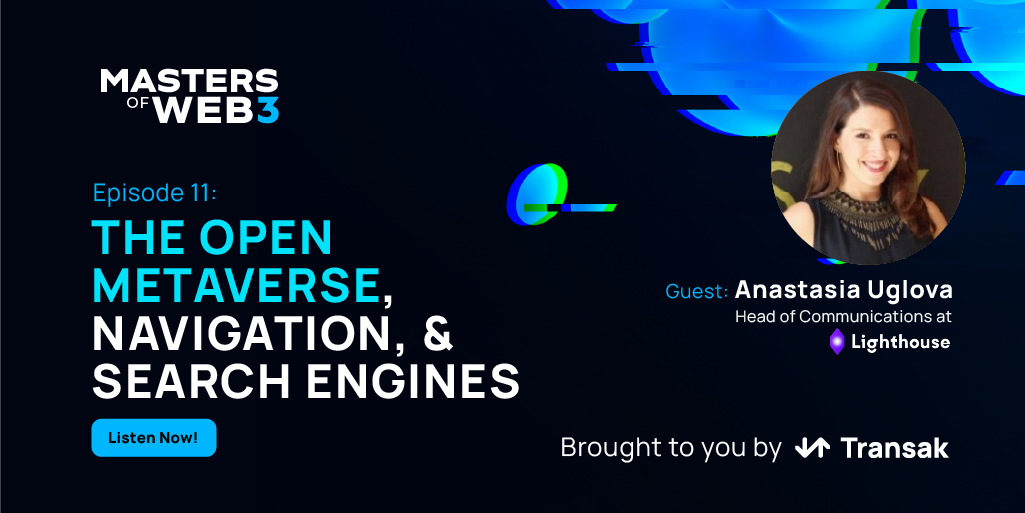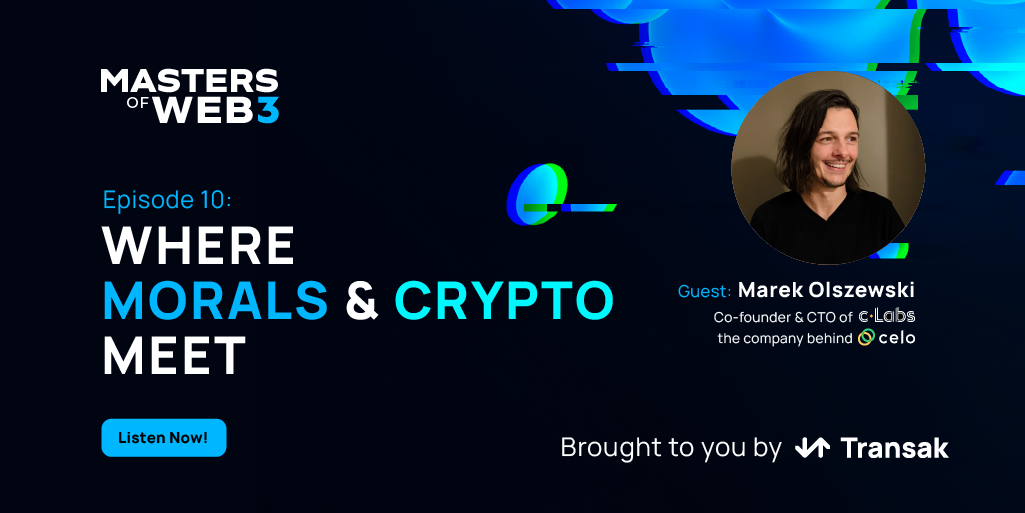The web3 space is new and exciting — but there’s still room for improvement and creativity. Mark Dawson, along with Co-Founder Daniel Stratton, saw that there was a need for artists to be able to sell their work on Optimism, a place where an NFT marketplace did not yet exist.
Listen in as we discuss:
- Whether crypto and web3 communities are ready for mainstream NFT adoption
- The importance of your NFTs following you around on the internet
- The innovation dilemma occurring in the crypto ecosystem
Are crypto and web3 communities ready for mainstream NFT adoption?
For Mark, originally, the answer to this question was no. Non-fungible tokens, or NFTs, were a foreign language to most. The difficulty of setting up a wallet, high gas fees when using Ethereum, and the unpredictability of it all were hurdles that many users did not want to face.
However, the need was still there, especially as the Ethereum network grew more crowded and congested. Mark did not let the statistics discourage him and instead used them as inspiration to create Quixotic — a user-friendly NFT marketplace on Optimism.
As you might know, Optimism is a Layer 2 rollup network that allows users to go about their NFT transactions in a quicker and cheaper way than going straight through Ethereum.
In the episode, Mark goes on to explain the benefits of using Optimism for NFT trading with Quixotic by saying, “A car and a plane both are modes of transportation. But if I have an airplane available to me, I'm taking completely different trips than if I only had a car available to me. So new trips are possible that would not have been possible before.”
Ethereum being the car and Optimism being the plane, of course.
The importance of your NFTs following you around on the internet
By creating an NFT marketplace on web3, it’s easier for your assets to all be in one place.
Mark explains that blockchains should be seen less like a “back-end database” and more like a user-facing browser that you can log in to anywhere to access your data. By managing your NFTs on a web3 platform such as Quixotic, you’re able to access and utilize your NFTs no matter what corner of the web you’re on.
Many developers who have tried to create similar NFT marketplaces have taken the route of removing the crypto-native side of the NFT experience in an effort to simplify it and make it more user-friendly. However, Mark argues that doing so removes a lot of potential NFT usage.
“You can’t do all these cool integrations, if you don't have a wallet, for example. So if you extract away the wallet too much, you lose all the cool interoperability that the open protocols of web3 give you,” Mark explains.
The innovation dilemma occurring in the crypto ecosystem
Quixotic is just one of the many new branches of the crypto ecosystem — a world that is still ever-changing. But finding your space in the crypto-field today as a developer is a lot more than just having a great idea.
According to Mark, there is what he calls an “Innovator’s Dilemma” where fresh ideas are not necessarily adopted due to the fact that the most successful crypto projects, such as Ethereum, are seeing huge success in their current models and don’t want to tweak what is already working.
“I think what has made me successful so far is really listening and deeply engaging with communities that I think are cool, for a long time. And then when it feels right, to try and step into a leadership role,” says Mark.
Though Mark was able to find an entry into the crypto developer world by discovering this need for an NFT marketplace on Optimism, Quixotic was still up against some heavy hitters.
However, he is confident that the benefits of using a Layer 2 such as Quixotic will outweigh the high prices and declining usability of Ethereum in the long run.

While Ethereum might be the larger market at the moment which is what many NFT artists and crypto consumers are looking for, Mark predicts that more and more users will transition to Layer 2s as the costs of Ethereum continue to rise over time.
At the moment, Quixotic is seeing more activity than ever as the world of NFTs becomes more and more universal.
Building on Quixotic and looking to accept payments? Integrate Transak Today








